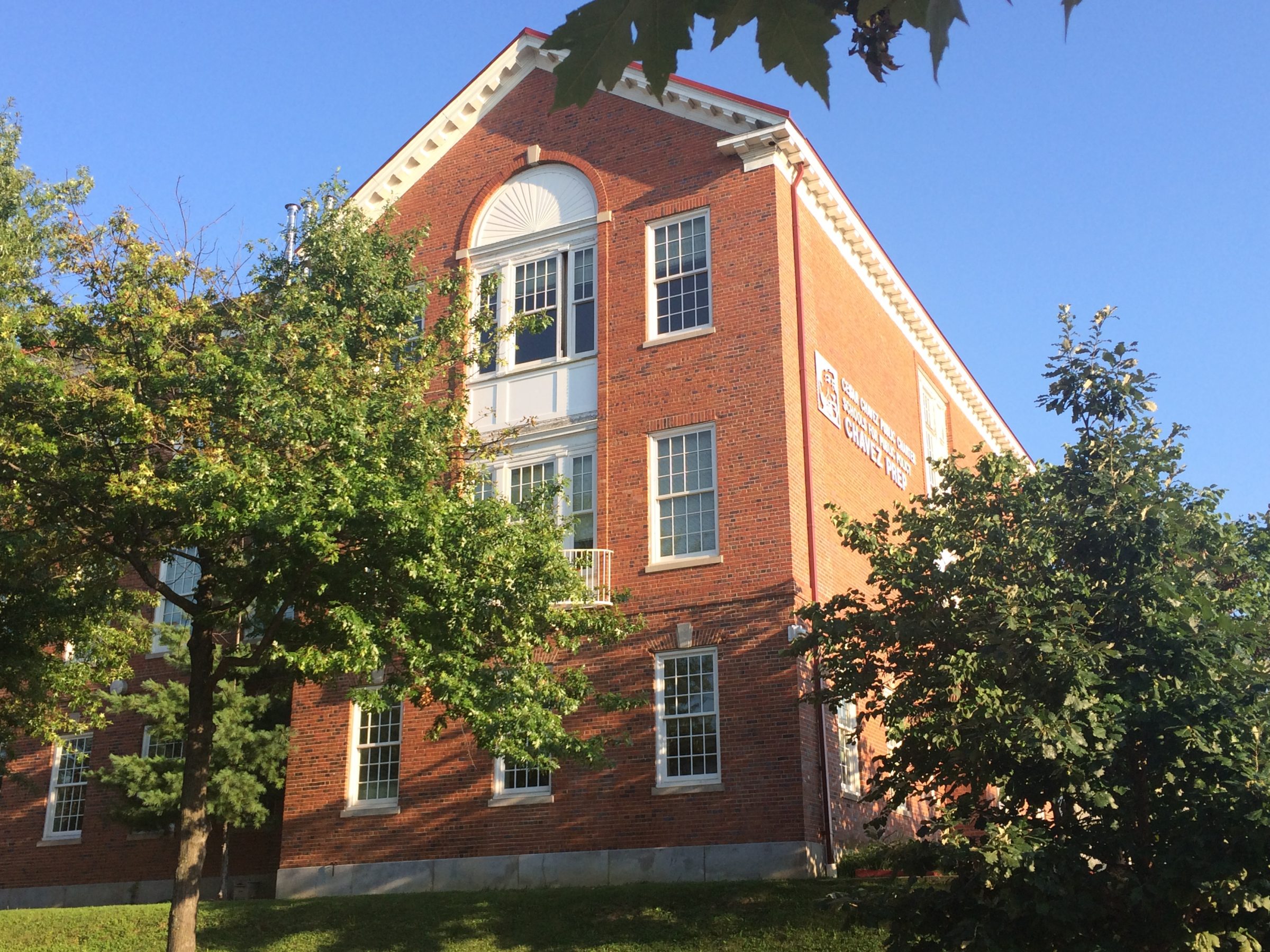“We had put in a ton of work throughout the entire year, and then to have that all be for naught in the end was discouraging.”
David Koenig spearheaded an effort to unionize teachers at Paul Public Charter School (Paul PCS), a middle and high school in northwest D.C. where he teaches government. The school would have become part of the roughly 10 percent of charter schools nationwide with a teachers’ union.
“We were all pretty demoralized,” Koenig said.
In an attempt to become the first teachers’ union at any District charter school, Koenig and his fellow organizers made their union campaign public in February, though their push this year did not succeed. Only one of the District’s 118 charter schools has successfully formed a teachers’ union, when the staff at Chavez Prep Middle School in Columbia Heights unionized a few months later.
Both these campaigns went public earlier this year, and together are the first signs that teacher unionization at charter schools is gaining momentum in the District. Charter schools, which are publicly funded but operate independently of the local school district, have historically lacked teachers’ unions.
The campaign at Paul PCS went public after staff presented a petition to the school showing roughly 70 percent of the faculty supported a union. They were set to organize under the District of Columbia Alliance of Charter Teachers and Staff (D.C. ACTS), a new affiliate of the American Federation of Teachers (AFT).
But a day before the March 30 vote, the AFT pulled the election.
Koenig said he sat with the AFT organizer a few days before the election and gauged public support. He expected 55 to 60 percent of the staff to vote yes, enough to form a union. But that number was not enough for the organizer to follow through with the election, Koenig believes.
“Our organizer said he had that experience in the past where people are saying that they’re gonna vote yes, but they’re not willing to be public, and then they go in and they actually vote no,” Koenig said.
Koenig said many teachers were upset by the AFT’s decision, but he understands the AFT wants their first attempt to unionize charter schools in the District to succeed.
“It just shows that their interest and priorities were not 100 percent aligned with ours,” Koenig said. “They’re thinking what’s the best way to organize charter schools in D.C., and we were thinking what is the best thing for us here at this school.”
Koenig said multiple factors led to the decline in public support for the union. Some teachers feared retaliation if they voiced support. District charter school teachers are at-will employees, meaning their employers can choose not to renew their contracts for almost any reason. Others were worried future employers would see their support for charter school unions, limiting their job prospects.
And most importantly, the entire process was too exhausting for many people. “It seems to me,” said Koenig, basing his observations off of conversations with other teachers, “that the board’s strategy was to make people so sick and tired of hearing about the union, having people talk to them about the union, hearing the word ‘union,’ that they would want to vote no just to make the whole thing go away.”
Speaking to POLITICO, an AFT spokesperson cited an anti-union campaign full of “fear, harassment, and intimidation” from Paul PCS’ administration. “I think [the AFT] probably went a little bit too far. That’s pretty strong language,” Koenig said. Nevertheless, he believes the administration employed dishonest tactics, accusing them of stalling unionization efforts, using popular administrators to discourage unionizing, and spreading negative rumors.
Roberta Colton, chair of the Paul PCS Board of Trustees, declined further comments, referring to a February statement explaining the board’s decision not to recognize the union. “The School has always maintained an open door policy and an atmosphere that encourages the free exchange of ideas on all issues that impact our valuable employees and the working conditions at the School,” the statement read.
According to Koenig, the school told teachers a union would make taking days off more difficult, and union dues would lead to lower take-home pay. He also said the school claimed a union would make teachers’ lives harder since they would no longer be able to bring their children to school.
But the Paul PCS administration and school board were not the only ones opposing the unionization effort. Nicole Clark is a colleague of Koenig’s at Paul PCS, where she teaches English. She is not anti-union, but she disagreed with the organizers’ tactics.
“They spoke negatively about our school in the press and did not give school leadership the opportunity to respond to their concerns before moving forward with a push for a vote,” she wrote in an email to the Voice.
Clark mentioned that along with other concerned members of the faculty, she voiced her thoughts at school forums and in private conversations with colleagues.
“We gained a lot of support from teachers who felt that they were not given the full picture when asked to sign the original petition,” she wrote.
Although union support is by no means universal, new organization efforts in charter schools are part of a larger growing interest in unionization at all levels of education.
“Adjunct professors at many campuses, including Georgetown, have unionized in recent years. Graduate students are also beginning to unionize,” Joseph McCartin, a history professor at Georgetown and director of the Kalmanovitz Initiative for Labor and the Working Poor, wrote in an email to the Voice. “Unions are strongly organized in K-12 public schools. The movement for charters was funded in many cases by those who hoped to weaken teachers’ unions. But even in charters, unions have been making inroads recently.”
And only four months after Paul PCS’ unsuccessful attempt, the faculty at another D.C. charter successfully unionized and are now negotiating their own contract. The two campaigns were separate with practically no communication between the two schools, but they faced similar challenges as their campaigns went public in 2017.
Organizers at Chavez Prep Middle School, one of the four Cesar Chavez Public Charter Schools for Public Policy, presented a petition signed by about 80 percent of staff to the National Labor Review Board in May, but were refused voluntary recognition from their school board, forcing them to go to a vote in order to unionize.
In June, teachers voted 31-2 to form a union under the AFT affiliate Paul PCS had first petitioned to join: D.C. ACTS. Over the next year, they will negotiate a contract with the school, with negotiations scheduled to begin in mid-September.
“I was really happy about it,” said Christian Herr, a Chavez Prep science teacher on the union organizing committee. “I wasn’t surprised to see that level of support.” Herr added that the teachers did a good job of staying informed and helping each other through the process.
Their first step toward unionization began in August 2015, when teachers reached out to the AFT for guidance. They did not submit a petition to the AFT until May 2017. Although he’s happy with the school and its administration this year, Herr said high rates of teacher and administrator turnover at Chavez Prep led to long-term instability for students and teachers, and was one of the main reasons he felt a union was necessary.
Like at Paul PCS, some teachers at Chavez Prep had reservations about the role of unions. Herr and Mateo Samper, another Chavez Prep teacher on the organizing committee, said some teachers at Chavez Prep were worried a teachers’ union might protect bad teachers. Herr had encountered this problem as an organizer in Memphis and did not want to see it happen at Chavez Prep.
“Our thinking is that our teachers need to be supported.
There needs to be a due process,” he said. “We’re not interested in protecting people who should not be in front of children.”
Herr and Samper said they did not feel there was a significant anti-union campaign from their administration. Dr. Kourtney Miller, the current Chavez Prep principal, wrote in an email to the Voice that the administration never supported unionization but respected the organizing process.
“From the school leadership’s perspective, what’s essential is that we make Chavez Prep a great place to learn and work, and we don’t think a union is necessary to achieve that goal,” she wrote.
Miller said the school’s refusal to grant voluntary recognition for the union served as a means to ensure all teachers had a full say. “We took a democratic approach, and it led to a vote,” she wrote.
“I think it is worth noting that this union effort is taking place at a school named for one of the great union leaders of the last half-century,” McCartin wrote. “Cesar Chavez believed strongly in unions as vehicles that could advocate not only for the workers who joined them, but for the common good.”
In a statement, the board of directors of Cesar Chavez Public Charter Schools for Public Policy emphasized that the school’s name has never implied the administration’s position on unionization.
“Having the name of legendary union organizer and civil rights activist Cesar Chavez on our doors for nearly 20 years has never been a statement of support or opposition to unionization,” it read. “It’s a statement of belief in the responsibility and power in all of us to improve the lives of others.”
To Koenig, unionization is a necessary tool for improving education, even in the face of difficulties like those he has experienced at Paul PCS.
He said conditions at the school have improved since the last attempt to organize, but to him, unionization is about more than that.
“It’s a bigger thing,” he said. “I think that teachers everywhere need to unionize where they’re not, and where they are unionized they need to be real active and get those unions to speak on bigger policy issues.”
Koenig wants to try again next school year, but this time, without the AFT. He said many of his colleagues are upset at the organization for pulling the vote. “It’s not easy,” he said. “There’s a lot of legal paperwork that needs to be done.”
While the AFT has employees to do that kind of work for them, Koenig said he plans to use a law firm, likely pro bono.
But this time around will be a little different.
“I think certainly having the example of Cesar Chavez [Prep] is going to help. Their school did many of the same things that our school did, but they stayed strong,” he said.
“Now they’re negotiating a contract themselves.”






